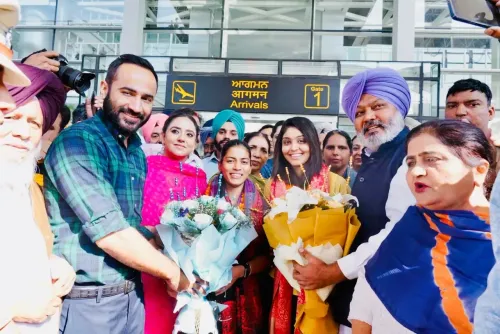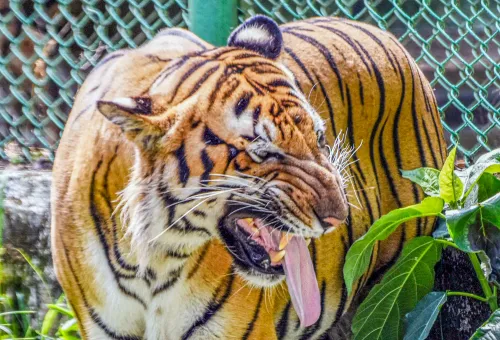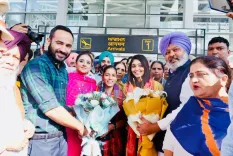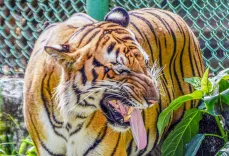How are Muslims in India Celebrating Bakrid 2025?
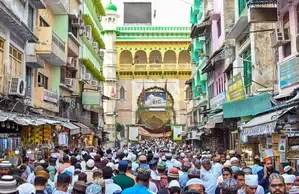
Synopsis
Key Takeaways
- Bakrid is a significant festival for Muslims, marking the spirit of sacrifice.
- Communities gather for congregational prayers at mosques and Eidgahs.
- 'Qurbani' involves the ritual sacrifice of animals as an act of devotion.
- The festival promotes acts of charity and community bonding.
- Authorities ensure security for peaceful celebrations across cities.
New Delhi, June 7 (NationPress) Muslims throughout India are joyfully observing Bakrid, or Eid al-Adha, this Saturday, marked by deep religious devotion.
The festivities commenced with special congregational prayers at mosques and Eidgahs across cities and towns, where large groups gathered to celebrate this sacred occasion.
Eid al-Adha, referred to as the "Festival of Sacrifice," commemorates the steadfast faith and obedience of Prophet Abraham, who was prepared to sacrifice his son as an expression of submission to God.
To honor this profound act of faith, Muslims globally engage in 'qurbani', the ritual sacrifice of animals such as goats, sheep, or buffalo, distributing the meat among family, friends, and the less fortunate.
In India, the festival is being celebrated with immense enthusiasm. In Delhi and Noida, devotees gathered in significant numbers for Bakrid prayers early in the day at major mosques. Announcements from local mosque committees indicated slight variations in Namaz timings; in Noida, the prayers began around 7:00 a.m., while in Greater Noida, timings varied from 6:45 a.m. to 8:15 a.m. based on the mosque.
In Kalyan, located in the Thane district of Maharashtra, police presence was increased near the historic Durgadi Fort due to concurrent events hosted by the Thackeray and Shinde factions, both claiming to uphold the legacy of Dharmaveer Anand Dighe's "Ghantanaad" movement, a tradition that has spanned 39 years.
Elsewhere in India, celebrations proceeded peacefully.
In Khurja, Bulandshahr, Uttar Pradesh, large crowds convened at the Eidgah for morning prayers.
In Bhagalpur (Bihar), thousands gathered at Tatarpur Masjid, CTS Ground, and Shahjangi Maidan to participate in prayers. Similarly, in Bhopal (Madhya Pradesh), significant attendance was noted at the Eidgah Mosque during the morning Eid al-Adha Namaz.
Bakrid festivities are anticipated to continue throughout the day, with families uniting for celebratory meals, charitable acts, and community connections.
Authorities in major cities have implemented enhanced security measures to facilitate peaceful observances.

